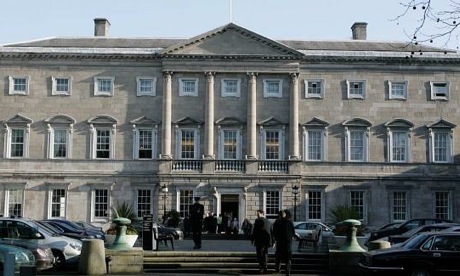Ireland’s Catholic bishops have denounced proposed legislation on abortion, saying it “appears to impose a duty on Catholic hospitals to provide abortions”.
Supporters of the Irish abortion bill say it would give “conscience-clause” protection to health-care personnel who did not wish to be involved in abortions, but the bishops question that claim.
Ironically, the proposed legislation is entitled the Protection of Life During Pregnancy Bill.
In fact, the bishops say, this “dramatic and morally unacceptable change to Irish law” would “make the direct and intentional killing of unborn children lawful in Ireland”.
The pressure to modify Ireland’s abortion law intensified last year after Savita Halappanavar died in Galway University Hospital. Her death was originally attributed to doctors’ refusal to perform an abortion, but an inquest found she died of an undiagnosed infection.
Suggesting that the bill appears to impose a duty on Catholic hospitals to provide abortions, the bishops said: “This would be totally unacceptable and has serious implications for the existing legal and constitutional arrangements that respect the legitimate autonomy and religious ethos of faith-based institutions.”
But the independent IrishHealth website said “in practical terms, there are no institutions which can still be termed ‘Catholic hospitals’ which would be obliged under the Bill’s terms to perform terminations”.
IrishHealth says only one maternity hospitals, the National Maternity Hospital in Dubliin, could still be deemed, in technical terms, a “Catholic hospital”, since the Catholic Archbishop of Dublin is chairman and three priests are on the board.
But it says the Church has had no active role in the hospital in recent times and the current archbishop, Archbishop Diarmuid Martin, has sought to be removed as chairman.
The bishops urged Catholics to contact their political representatives and encourage a vote against the bill, but they did not suggest any disciplinary action against the sponsors of the legislation, including the government leadership.
Questioned as to whether politicians who vote for the bill should be barred from receiving Communion, Cardinal Sean Brady of Armagh answered: “There would be a great reluctance to politicise the Eucharist.”
Sources:
Irish Catholic Bishops’ Conference
Image: Irish Examiner
Additional readingNews category: World.




